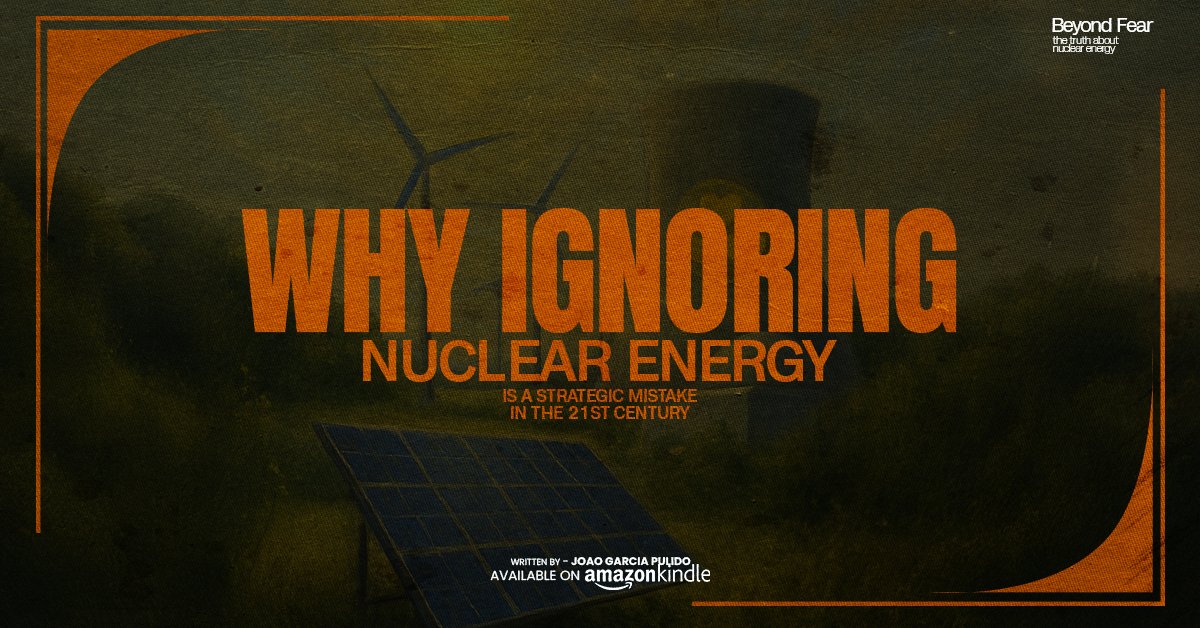Introduction: The New Energy Reality
Energy policy is no longer just about keeping the lights on. It is about national security, economic resilience, and global competitiveness. The past decade has exposed the fragility of energy systems that depend heavily on fossil fuels and volatile supply chains. From price shocks to geopolitical standoffs, the risks of inaction are clearer than ever.
In this context, nuclear energy demands serious reconsideration. In his book The Truth About Nuclear Energy, Joao Garcia Pulido makes a compelling case that sidelining nuclear is not just shortsighted — it is strategically dangerous.
The Strategic Value of Nuclear Energy
A Pillar of Energy Security
Countries dependent on imported oil and gas remain vulnerable to political manipulation. Nuclear energy reduces this vulnerability. By harnessing domestic uranium or engaging in diverse global supply chains, nations can insulate themselves from the volatility of fossil fuel markets.
Economic Competitiveness
Nuclear energy is capital-intensive to build but delivers decades of reliable, low-cost power once operational. For industries requiring stable electricity — manufacturing, technology, healthcare — this stability is critical. Pulido argues that dismissing nuclear undermines long-term competitiveness in a global economy where energy reliability defines growth.
Lessons From Recent History
Germany’s Nuclear Exit
Germany’s decision to phase out nuclear power, even while facing ambitious climate goals, has led to reliance on coal and imported natural gas. The result: higher emissions, higher costs, and reduced energy security. This policy choice illustrates the dangers of allowing ideology to outweigh pragmatism.
France’s Nuclear Resilience
France, by contrast, built its energy strategy on nuclear power. As a result, it boasts one of the cleanest and most reliable electricity grids in Europe. The contrast between the two countries demonstrates how energy policy decisions shape national outcomes for decades.
Innovation and Opportunity
Small Modular Reactors (SMRs)
The nuclear industry is not static. New technologies like SMRs promise safer, more flexible, and cost-efficient reactors. For countries hesitant to invest in large-scale projects, SMRs represent an accessible entry point into nuclear energy.
Beyond Electricity
Nuclear energy’s value extends far beyond the grid. It supports water desalination, industrial heat, hydrogen production, and medical research. These applications make it a versatile strategic tool, not merely an electricity option.
Addressing Policy Concerns
Safety and Public Trust
Policymakers must address public skepticism with transparency and evidence. Nuclear safety has advanced dramatically since the mid-20th century, and regulators enforce some of the strictest oversight in the energy sector. Building trust is not only about engineering but about communication.
Waste and Responsibility
Nuclear waste remains a political challenge more than a technical one. Long-term disposal solutions exist, as demonstrated in Finland. What is required is political will and cross-border cooperation. For leaders, solving waste management is not only about sustainability but about demonstrating accountability.
The Geopolitical Dimension
Energy as Power
In the 21st century, energy is as much a weapon as a commodity. Nations that control their energy futures wield leverage on the global stage. Nuclear energy provides independence from the volatility of oil and gas markets dominated by a few key exporters.
A Dividing Line
Countries investing in nuclear may find themselves more resilient to crises, while those that reject it risk economic stagnation and political vulnerability. Pulido highlights this as one of the defining strategic divides of our era.
Why Business Leaders Should Care
Stability for Growth
For CEOs and investors, energy is not abstract. It determines production costs, supply chain stability, and shareholder value. Nuclear energy offers long-term price stability in a world where fossil fuel volatility erodes margins and renewable intermittency complicates planning.
Innovation Partnerships
Investing in nuclear also creates opportunities for public-private collaboration, research, and new industries. From advanced reactor design to nuclear medicine, partnerships across sectors can drive both profit and progress.
Why This Book Matters for Leaders
The Truth About Nuclear Energy is more than a book about science. It is a handbook for decision-makers. Pulido equips readers with facts, history, and insights that can inform choices with consequences stretching across generations.
For policymakers, it provides a framework to rethink energy security in light of global challenges. For business leaders, it highlights nuclear energy as both a stabilizer and an opportunity for growth.
Conclusion: A Strategic Imperative
Ignoring nuclear energy is not simply an environmental stance — it is a strategic mistake. At a time when nations are competing for security, resilience, and prosperity, dismissing nuclear power sidelines one of the most powerful tools available.
Pulido’s book challenges leaders to confront uncomfortable truths. Energy systems cannot be built on ideology alone. They must be grounded in science, strategy, and pragmatism. The Truth About Nuclear Energy is a call to action for those with the power to shape policies, investments, and futures.
The choice is stark: embrace nuclear as part of a diversified energy future, or risk falling behind in a century defined by competition for stability and sustainability.
Amazon Link: The Truth About Nuclear Energy


Leave feedback about this